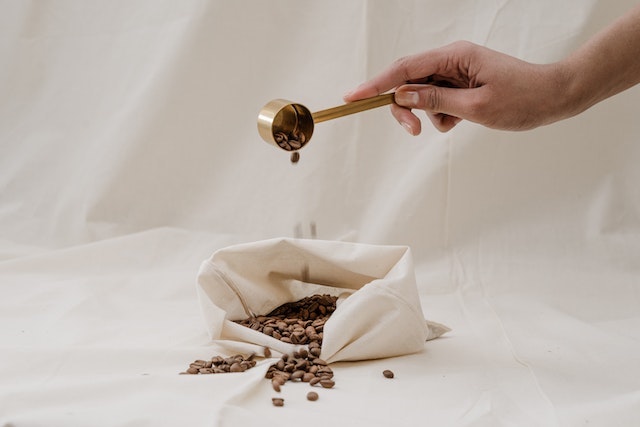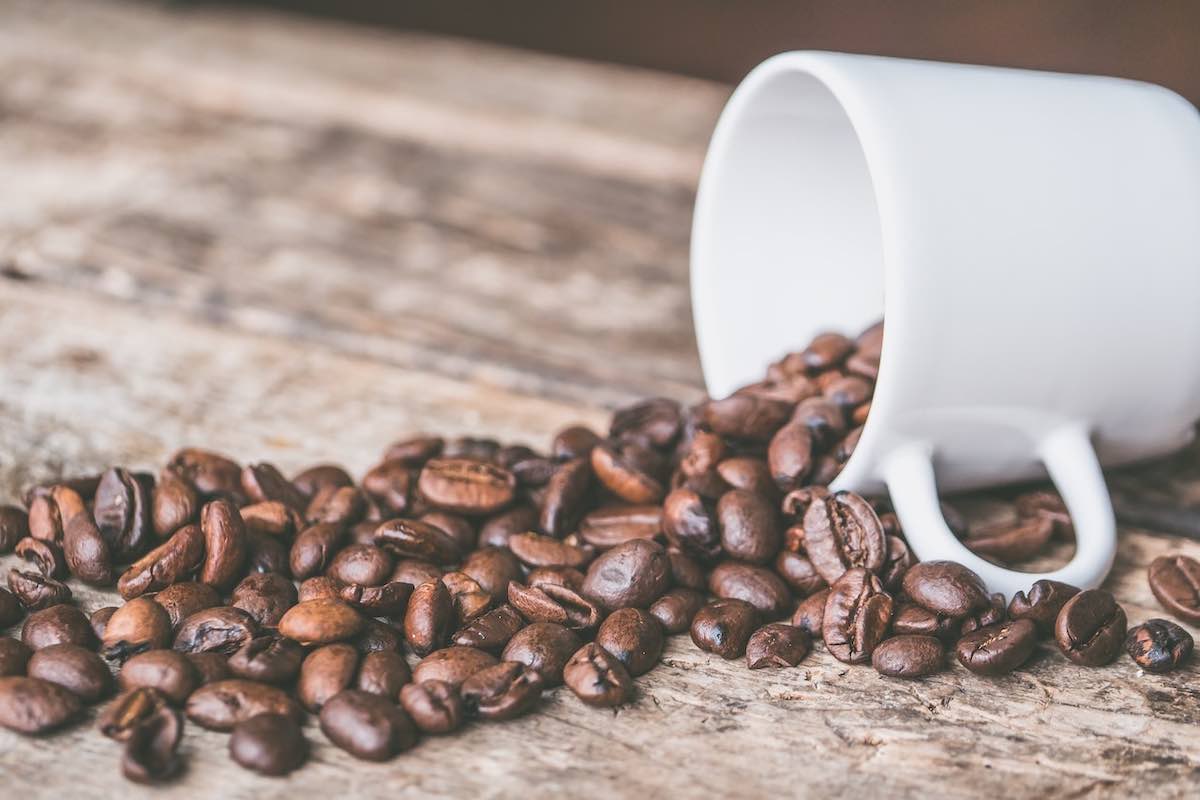The scent and flavor of freshly roasted coffee are divine, but sometimes your coffee stays unbrewed longer than you’d planned and goes a little off.
It happens to everyone, but roasted coffee beans are particularly volatile and don’t last too long once exposed to oxygen.
If your coffee tastes a little flatter, use these methods to check whether they’ve gone stale!
Six ways to check if you have freshly roasted beans
Use these tips to check whether your coffee beans have gone bad.
1. Smell the beans
The first order of business should be checking for that tell-tale smell. Freshly roasted beans have a distinct, intense aroma (you know the one!)
If your beans are missing that “freshly roasted” smell, there’s a good chance they’re old.
Pre-ground coffee starts losing its signature aroma practically the moment it’s ground, so you may have to inhale when checking each bean!
2. Check the bag for a valve
Most products in the “roasted coffee” aisle should have a small valve on the bag. That’s because coffee releases lots of CO2 (carbon dioxide) as it degasses, regardless of roast profile.
If you’ve picked up a bag of newly roasted beans, there should be a valve to help the beans release CO2. The valve is a sign that your beans are fresh and currently undergoing the degassing process.
3. Look for mold on the beans
Like freshly-cooked food and other products sourced from living organisms, coffee is prone to spoiling if exposed to too much moisture.
Once you see mold, throw out the entire batch and pick up more. This is unlikely if your beans went through sanitary roasting, but it’s still good to check!
You can stop mold from growing on your beans by freezing them, but other flavors and moisture from your frozen food may mix with your coffee.
4. Check for oil
Pick up a coffee bean or several from your bag and inspect them closely. They should have a glossy appearance and a slight sheen to them.
These oil-like substances should also be visible on your hands or inside the coffee bag.
The coffee roasting process exposes every bean to intense heat, coating it and making it look and feel oilier.
Note:
Different coffee beans have different oiliness levels! Lighter roasts typically won’t be as oily as dark roasts.
5. Place them in a sealed bag
A simple Ziploc bag for storage will do for this step, but you can also put your coffee beans in a vacuum-sealed bag to ensure they’re fresh.
Pick up about a 1/2 cup of roasted whole coffee beans and place them in a sealed bag. Press out as much air as you can!
Leave them out overnight and check on them the next day. Fresh coffee beans that are mid-degassing should cause the bag to puff up. Otherwise, you’re looking at old beans.
6. Check for a roast date
We’ve covered a few different methods here, but this is a surefire and common way of checking your beans’ freshness. Simply check their expiration date!
If your coffee was processed over 10 days ago, it’s probably too old. Drink at your own risk!
Tip:
Stale coffee beans have the same caffeine as fresh beans, so don’t brew too much just because your beans are long past the roasting date!
Help your coffee beans stay fresh for longer

Not every coffee bean in your morning cup will last too long, but you can stretch your coffee’s shelf life and preserve some freshness with these tips.
Put them in an airtight container
Grab your whole beans and seal them in an airtight container. It’s also important to match the container’s size to the quantity of beans you have.
This is because excess air and oxygen will cause your coffee to oxidize. Remember to keep your beans in a cupboard without exposure to excessive heat and light.
Proper storage won’t completely pause your coffee’s degradation but will help extend its shelf life. Use it a week or two after grinding for maximum flavor!
Stay away from the freezer
Coffee beans are highly susceptible to spoilage regardless of how fresh they are, but adding moisture to the mix is a risk you shouldn’t take.
Whether you’re putting away your beans in a bag or the cupboard, try to avoid freezing or refrigerating them!
Brew them sooner, not later
The roasting process brings out all the flavor in coffee, along with oils and other compounds.
However, this process also starts causing the beans to break down and lose their freshness, so keep those beans green until it’s brewing time.
Warning!
There’s a limit to this tip! Give your coffee at least 2 days to degas before brewing it.
Make the most of your fresh coffee beans
Follow these tips to ensure your coffee beans are freshest and don’t go bad before you can brew them!
Don’t grind until it’s brewing time
You might’ve guessed this by now, but speed is key to ensuring your coffee doesn’t lose its signature flavor.
Since coffee immediately begins to degrade after prolonged exposure to air, don’t grind your beans unless you’re going to drink them.
Only pick up fresh beans
This may seem obvious, but stay with us! Since beans lose their taste relatively quickly, buying coffee in small batches rather than bulk is best unless you’re running a coffee shop.
Preserve your coffee beans’ freshness to treat yourself to a freshly ground batch.
Conclusion
Fresh coffee is a bonafide gift enjoyed the world over and should be stored and treated properly to ensure it doesn’t lose any of its signature taste.
You don’t need to be a professional roaster to keep your beans fresh longer, and enjoy the subtle notes in each cup!
Frequently Asked Questions about how to tell if coffee beans are fresh
You can check the freshness of your coffee beans by smelling them, checking the bag for a valve, looking for mold, checking for oil on the beans, placing them in a sealed bag to see if it puffs up overnight, and checking the roast date on the bag.
You can help your coffee beans stay fresh for longer by storing them in an airtight container away from excessive heat and light. However, avoid storing them in the freezer as the moisture can lead to spoilage.
Yes, you can still use coffee beans that are past their roasting date but the flavor may be affected. Stale coffee beans still contain caffeine but they might not provide the same taste as fresh beans.

Hey there! I’m Austin and I love coffee. In fact, I drink about 5 americanos a day. I started BrewingCoffees because I wanted to share my love of coffee with the world. Before starting BrewingCoffees, I worked as a Barista for 7 years.


Leave a Reply